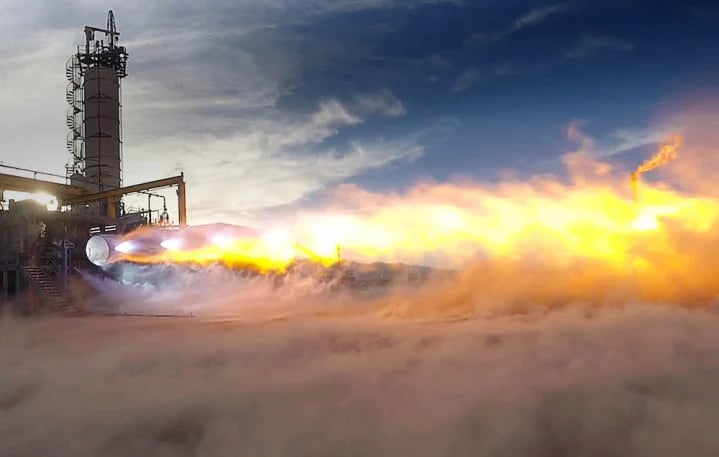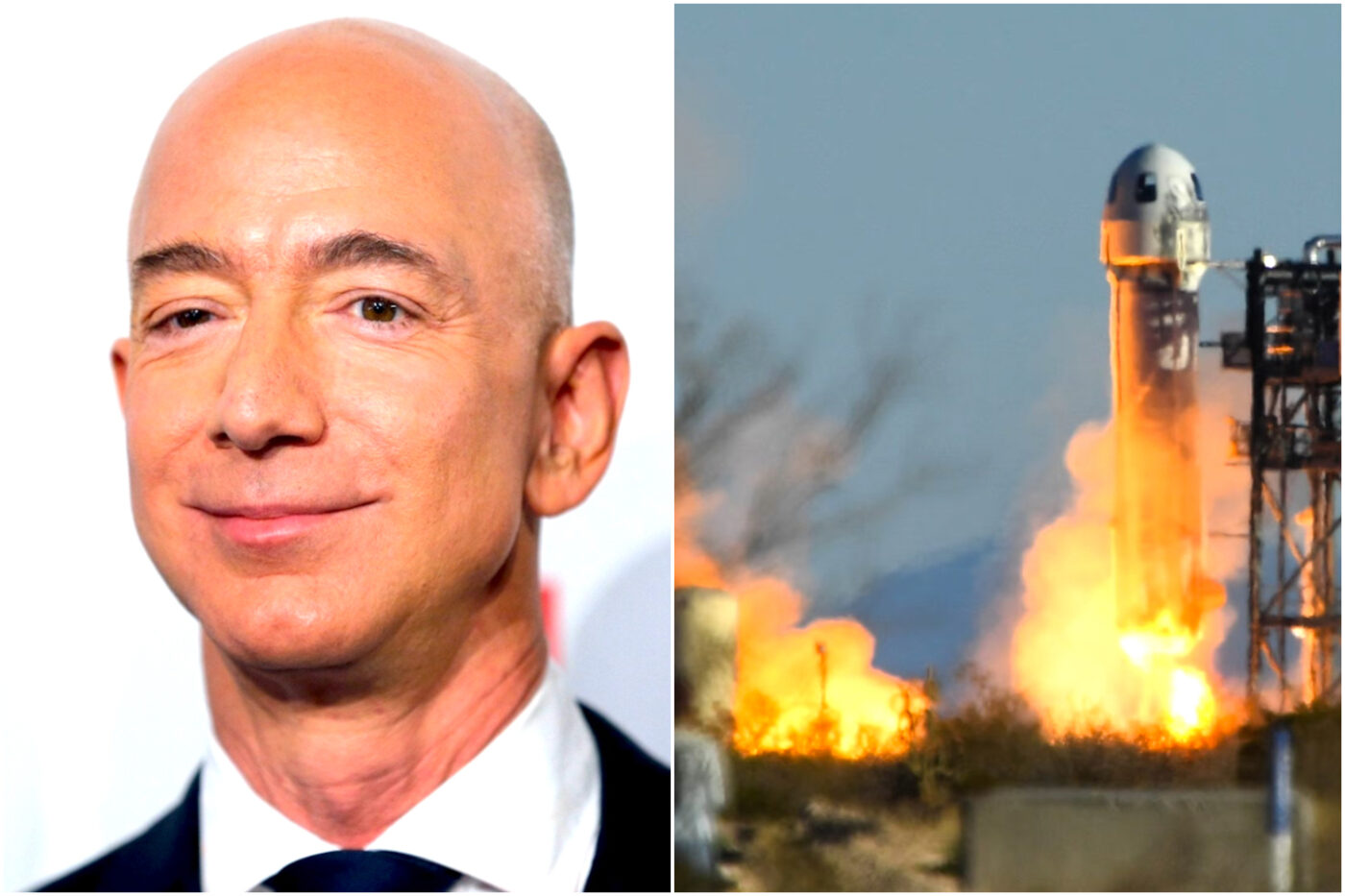A Jeff Bezos-owned Blue Origin rocket exploded during testing, resulting in the total destruction of its engine and significant damage to the surrounding infrastructure… but no one revealed this for almost two weeks after the incident.
With all that’s going on in the world of burly billionaires — Mark Zuckerberg‘s and Elon Musk‘s ongoing spat over Threads, the endless cage fight hype, and revelations about Musk’s recreational drug use — you can understand why Jeff Bezos would generally be looking to stay out of the headlines. Does that, however, give him the right to blow up several million dollars of taxpayer money and not tell the public for weeks after the fact? Maybe not…
It was revealed only yesterday that the explosion occurred during a firing on June 30 at a West Texas facility owned by Bezos’ space company. The incident — which could have serious ramifications for both Blue Origin’s perspective customers as well as its rocket program more widely — raises concerns about the company’s transparency, or lack thereof, as well as the unaccountable use of taxpayer money which, on this occasion, has literally gone up in flames.
WATCH: For a more successful feat of multimillion-dollar engineering, check out Bezos’ yacht.
According to sources speaking to CNBC, the BE-4 engine exploded ten seconds into the test, despite having already approached the end of its testing phase and was scheduled to be shipped to Blue Origin’s customer — United Launch Alliance (ULA) — for use on ULA’s second Vulcan rocket launch. While the company has confirmed that no personnel were injured during the incident, the root cause of the explosion — or why its reporting was so delayed — are still unknown.
This incident follows a three-month investigation into ULA’s own test explosion, where the upper stage of their rocket exploded during a structural test. While ULA announced that the problem could be fixed fairly straightforwardly, the company has decided to run ongoing tests into the thickness of the upper stage’s steel walls as a precautionary measure. How this will impact the Ulcan program in the long run is yet to be determined.
The repercussions of the BE-4 incident are wide-reaching: Blue Origin’s New Glenn rocket — which requires seven of these BE-4 engines per launch — also depends on the successful production and testing of these engines. Both Vulcan and New Glenn have signed lucrative contracts with Amazon, which has ordered a staggering thirty-eight Vulcan launches and up to twenty-seven New Glenn launches to support its ‘Project Kuiper’ internet satellite program. On top of all of this, Blue Origin plans to use New Glenn for its lunar lander project as part of a $3.4 billion USD NASA contract.

While BE-4 engine was initially expected to be ready by 2017, it’s clear that these issues, amongst a whole host of others, have evidently caused significant delays. Similarly, the inaugural flight of New Glenn — originally scheduled for 2020 —is also yet to happen, with no official target date announced by Blue Origin. Despite all of these setbacks, Blue Origin has invested in expanding its facilities, including a major engine production factory in Alabam and has also leased engine test stands at the Marshall Space Flight Center.
Perhaps unsurprisingly, all of this has helped to resurface ongoing concerns about the utilisation of taxpayer money and the transparency of the massive private companies that we trust to spend it. Not only did this particular module cost over $7 million USD (~ $10 million AUD) — as reported by The Daily Mail — but it comprised a central part of the $500 million USD grant that Blue Origin has been given as part of the wider NASA contract.
Understandably, people are now starting to ask whether all this money being sunk into space exploration is worth it and — more urgently — if companies like Blue Origin are comfortable blowing up millions of dollars of taxpayers’ money without reporting it, how many of our hard-earned dollars have been burnt to date?
As taxpayer funds go up in smoke along with Bezos’ space-bombs, it’s time we all faced up to the difficult question of whether the sky-high price of space exploration is worth the burning hole in our wallets.
